 TV
TV « In Which We Interrupt To Bring You A Special Broadcast »
 Wednesday, August 24, 2011 at 11:04AM
Wednesday, August 24, 2011 at 11:04AM 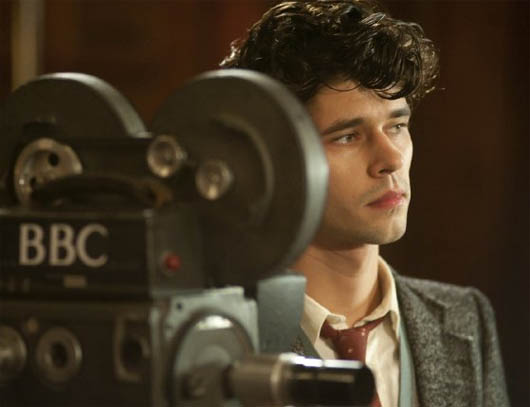
Sixty Minutes
by KARA VANDERBIJL
The Hour
creator Abi Morgan
Wednesdays at 10 on BBC America
Imagine for a moment that Ben Whishaw last appeared on screen as John Keats. We might feel a little impatience towards his character, Freddie Lyon, in Abi Morgan’s summer drama The Hour. How can a man whose latest accomplishments involved stroking small woodland creatures, kissing Abbie Cornish and dying of consumption convince us that he is anything other than the tender romantic? We knew nothing of Whishaw before he was the perishing poet, yet Freddie is as far from Keats as a puppy is from a man.
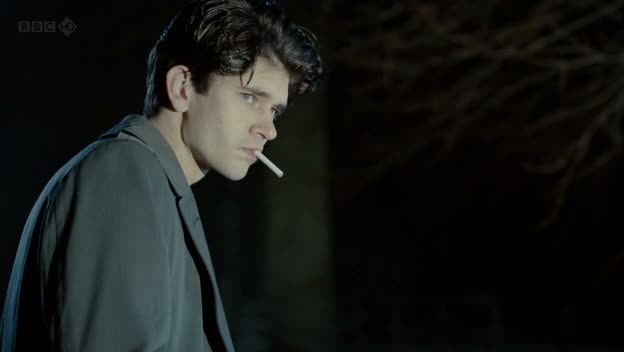
The eager curls have been greased back. His lips harden around a cigarette. Any residual softness hides in the huggable tweed suits, in the circumference of fingers around a steaming cup of tea. In a show that is half the actual life story of Peter Jennings and half an Agatha Christie mystery, Whishaw’s character balances precariously between the romantic and the cynic. He carries the show as gently as he carries the raincoat of a man he killed. The image has not been altered in any way, but it has been tailored to fit all of your secret fears.
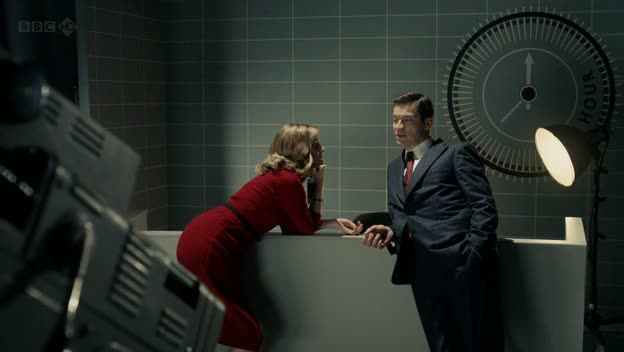
Clocks appear in almost every scene of The Hour, yet for the entirety of the first two episodes almost nothing progresses. A watch on Freddie's wrist moves in and out of focus. He and Bel Rowley (Romola Garai) work for the BBC, which in 1956 primarily aired newsreels of society's upper echelon getting engaged and winning croquet tournaments. He is idealistic, she ambitious.
They have tired of the mundane, and it seems like they are about to get a break when an acquaintance, Clarence Fendley (Anton Lesser), organizes a team for a new current affairs program called "The Hour" and nominates Bel as its producer. Tempers flare when Freddie’s attempts to become the face of the show are thwarted by the charming Hector Madden (The Wire's Dominic West), a disaster barely appeased by Bel’s promise that Freddie can work with her to make the show everything they have always dreamed a news program should be.
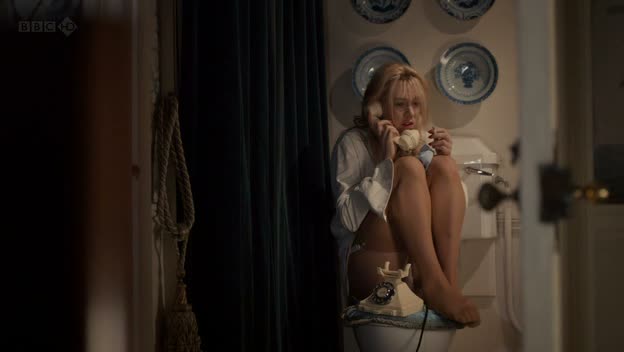 Ruth Elms
Ruth Elms
When his childhood friend Ruth Elms (Vanessa Kirby) asks Freddie to investigate a hastily dismissed murder, he finds himself embroiled in a conspiracy that eventually leads to her death, rumors of Soviet espionage and the involvement of the British secret service, MI6. To make matters worse, the BBC refuses to endorse or help Freddie in his investigation.
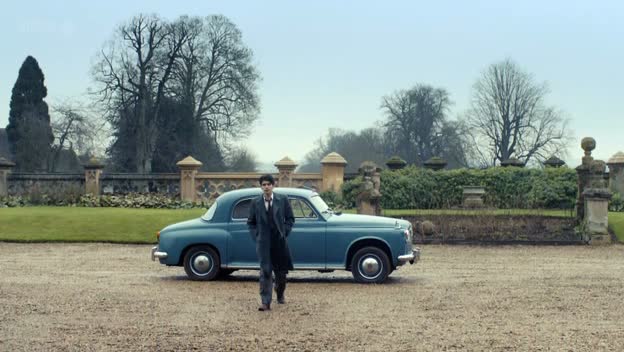
Everything stagnates until the crisis in Suez, when Bel and the team step up to the plate and deliver the story from an angle nobody else in England is brave enough to explore. Their insistence to bring an unbiased presentation of facts to the British people gives the show popularity while dealing out obstacles that they will have to fight to overcome.
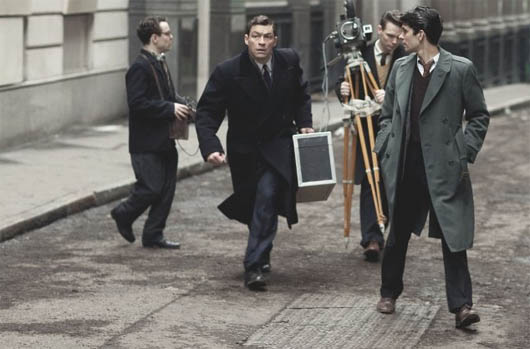
People nowadays watch the news for entertainment, a concept that had just begun to expand in the late 50s. Word of the Suez crisis has the office assistant Sissy Cooper (Lisa Greenwood) panicking — but with excited eyes — about the outbreak of a third World War.
Outside of the television studio characters grapple for copies of old newspapers, search dusty archives, protect sensitive film reels from the elements. News still took time to travel, arrived by precious mediums, and the consumption of it hinted at privilege. Freddie brings home hot chips wrapped in old newspapers to his father, who devours them eagerly. This is decidedly British but it is also decidedly symbolic. Freddie only picks up a pen to decode the printed word, to turn it into "real" information — that which is seen, that which comes to pass. A viewer of "The Hour" confides that watching the program makes the world seem unbearably real. What did people do before live footage, before blog posts with pictures?
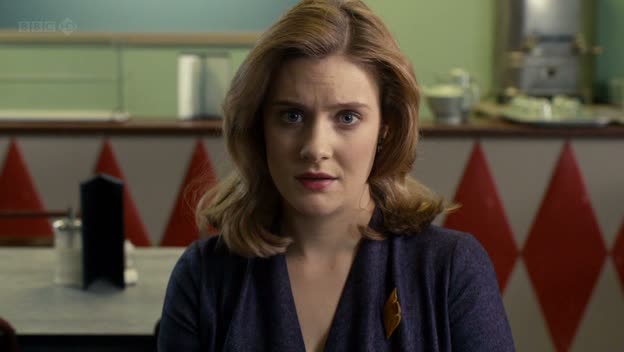
Bel jokes that "The Hour" is "a news show, not vaudeville" but it is farce that drives the story: the farce of British democracy, the farce of an illicit love affair, and the farce of Soviet spies in the BBC.
The ability to make somebody afraid of something constitutes true power, one that Bel and her colleagues attempt to dispel by showing the story behind the rumors. Hector Madden’s wife discovers that Bel has been sleeping with her husband under the pretense of "work" and reduces her to tears over a cup of tea. Freddie discovers that it is his father — not secret agents — who has been sacking the apartment looking for artifacts of the past. Truth is beauty. If it is not beautiful, make it so ugly that the spectator will be unable to tear his eyes away.
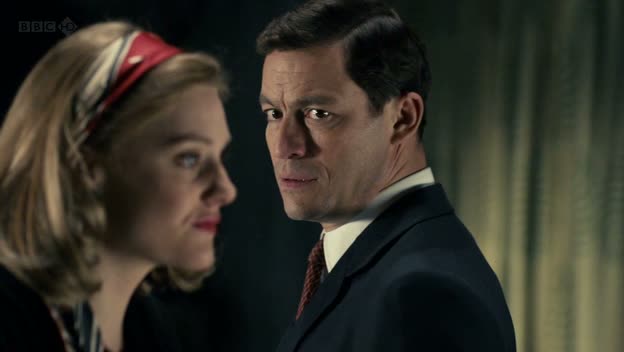
Chemistry between the characters gradually loosens into a sort of comfortable tension. Freddie loves Bel, which she either does not realize or pointedly ignores. Bel’s feelings for Freddie range between maternal protectiveness and intimate friendship; Hector, weirdly inarticulate and married, fails her again and again yet still manages to get in her pants.
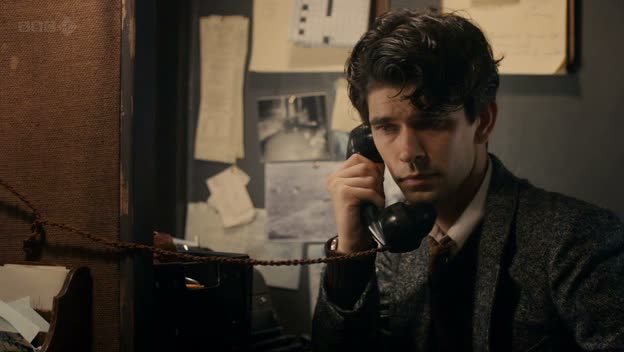
Antagonists rise and fall like playing cards, each less threatening than the last. Morgan would have us believe that people slept together in narrow twin beds and survived solely on a diet of buttered white bread, chips, and whiskey. The Hour's six episodes have been helmed by three different directors, each defining the relationships between characters with dramatic lighting straight out of a film noir, faces blurring in and out of focus. Stark, almost industrial interiors contrast sharply with the modernity of Bel and Freddie’s project.
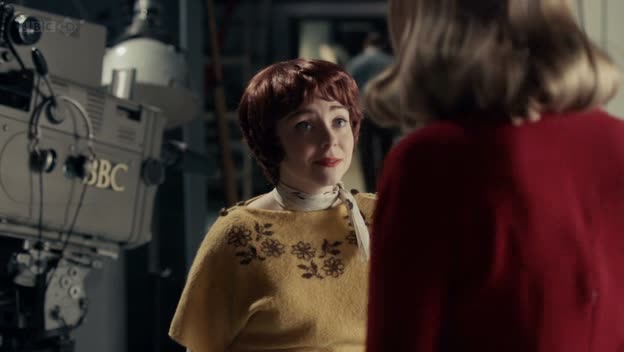
The Hour is particularly unkind to the elders, depicting them as senile or desperate for another bout of youth. Bel’s mother paints her face garishly and stuffs a middle-aged body into a slinky dress for a night on the town. Freddie's father spends his evenings moving chips from the paper to his mouth in front of the television, refusing to answer his son’s questions. Head of News Clarence Fendley cannot be trusted in a moving vehicle.
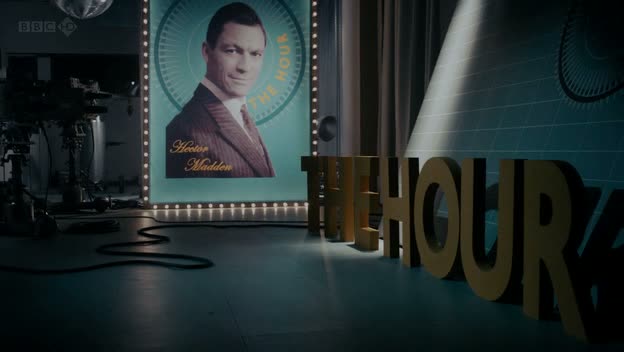
We might arrogantly suggest that the rapidly modernizing world — a world of nukes, of strange overturned revolutions and faces in front of a camera — belongs only to the young. In a tender, more wistful way The Hour tips its hat to a generation of people who gave up their best years to survival, to evenings in the basement with the blackout curtains drawn. We tried to make the world better for them, and succeeded in making it complicated.
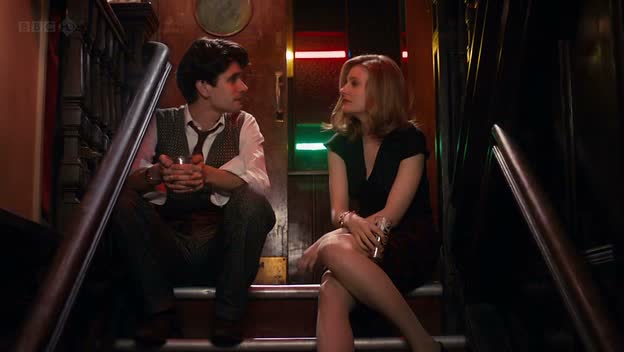
Mad Men forever defines anything pre-1970; walking in the footsteps of this giant, Morgan tries hard not to drown in its shadow. The script aspires to something like His Girl Friday and fails, while misogynistic jabs thrown in Bel’s general direction sound like they have been included just for the sake of it. Romola Garai consistently seems as if she is about to say something, but then she never does. The era undoubtedly sells well, but requires more than a few nice costumes, people enjoying smoking and clever parallels between their political situation and ours before we'll buy.
Kara VanderBijl is the senior contributor to This Recording. She is a writer living in Chicago. She last wrote in these pages about how to become an Anthropologie girl. You can find her website here. You can find an archive of her writing on This Recording here.
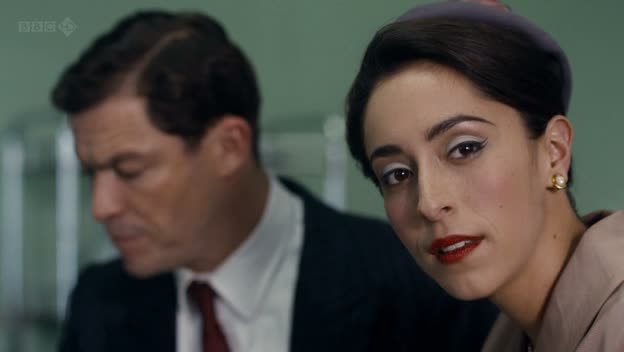
"100 Days of Sycamore" - Fionn Regan (mp3)
"The Horses Are Asleep" - Fionn Regan (mp3)
"North Star Lover" - Fionn Regan (mp3)
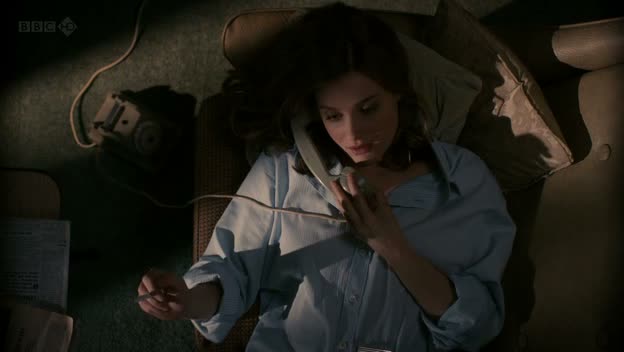
 dominic west,
dominic west,  kara vanderbijl,
kara vanderbijl,  mad men,
mad men,  the hour,
the hour,  the wire
the wire 





























Reader Comments